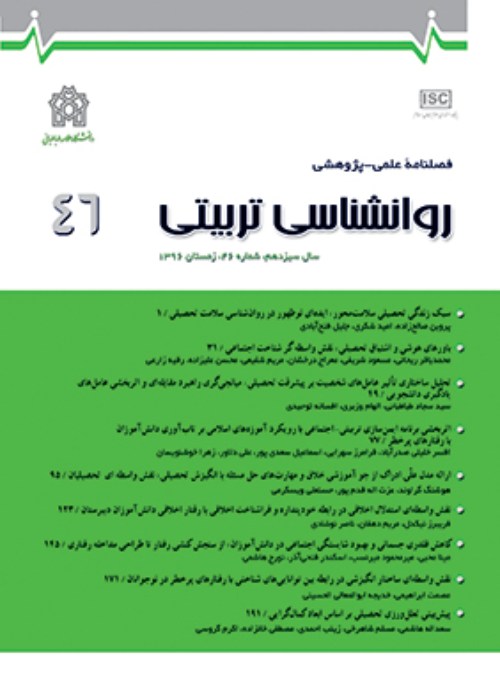A Comparison of the Effectiveness of Repetitive Textual and In-Text Reference Links on English Vocabulary Learning and Retention and Reading Comprehension
Author(s):
Abstract:
One aspect of second language teaching via computerized language learning programs that has received great attention over the past few years is helping vocabulary learning through link technology. The present study was conducted to examine the effect of two types of link (repetitive textual and in-text reference) on vocabulary learning and retention and reading comprehension. The design of this quasi-experimental study was pretest-posttest with two independent groups in which 35 undergraduate students in two experimental groups participated in the study and were asked to read a computerized text. Two different versions of the reading text were developed for the experimental groups involved in the study. In one version of the computerized texts, the repetitive textual links, and in the other, in-text reference links were used. Having read the text, the participants took an immediate vocabulary posttest as well as a reading comprehension test. Three weeks following the exposure, the participants in the two groups were asked to complete a delayed vocabulary posttest in order to measure their retention level of the target words. Data obtained from pre-test and post-tests were analyzed using t test at p<0.05 significance level for two independent groups. The mean score of in-text reference links group in learning vocabulary posttest was 16.11 (SD=2.45), in vocabulary retention posttest 13.66 (SD=1.86) and in reading comprehension was 10.11 (SD=1.41).The mean score of repetitive textual links group in learning vocabulary posttest was 12.06 (SD=2.14), in vocabulary retention posttest 8.29 (SD=1.53) and in reading comprehension was 9.29 (SD=2.02).The result of the study indicated that the participants in the group with in-text reference links outperformed those in the group with repetitive textual links in terms of vocabulary learning and retention; however, no statistical significance in the participants’ reading comprehension level was detected. Based on levels-of-processing theory, processing target words at different levels would lead to a differential rate of learning and retention of those words. Put another way, those target words that are deeply processed would be learned better and retained longer in contrast to those which are only treated at shallow levels of processing.
Keywords:
Language:
Persian
Published:
Educational Psychology, Volume:9 Issue: 29, 2013
Pages:
69 to 94
magiran.com/p1257349
دانلود و مطالعه متن این مقاله با یکی از روشهای زیر امکان پذیر است:
اشتراک شخصی
با عضویت و پرداخت آنلاین حق اشتراک یکساله به مبلغ 1,390,000ريال میتوانید 70 عنوان مطلب دانلود کنید!
اشتراک سازمانی
به کتابخانه دانشگاه یا محل کار خود پیشنهاد کنید تا اشتراک سازمانی این پایگاه را برای دسترسی نامحدود همه کاربران به متن مطالب تهیه نمایند!
توجه!
- حق عضویت دریافتی صرف حمایت از نشریات عضو و نگهداری، تکمیل و توسعه مگیران میشود.
- پرداخت حق اشتراک و دانلود مقالات اجازه بازنشر آن در سایر رسانههای چاپی و دیجیتال را به کاربر نمیدهد.
In order to view content subscription is required
Personal subscription
Subscribe magiran.com for 70 € euros via PayPal and download 70 articles during a year.
Organization subscription
Please contact us to subscribe your university or library for unlimited access!


